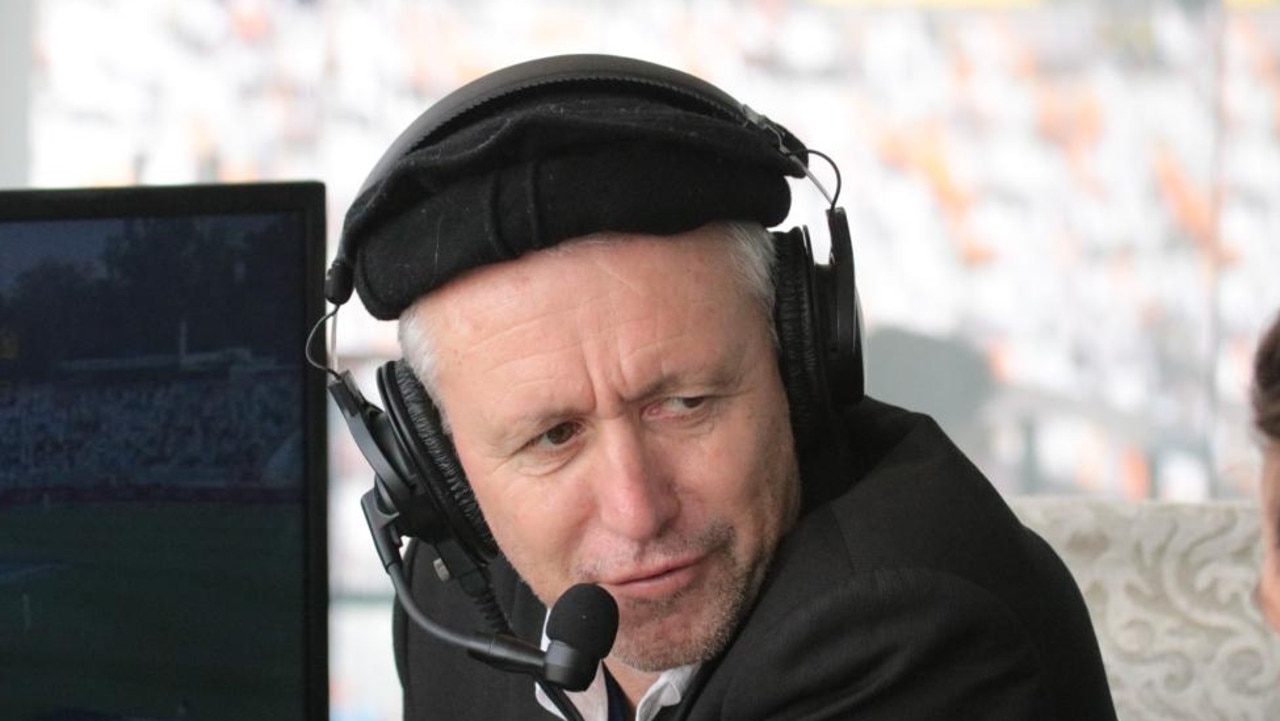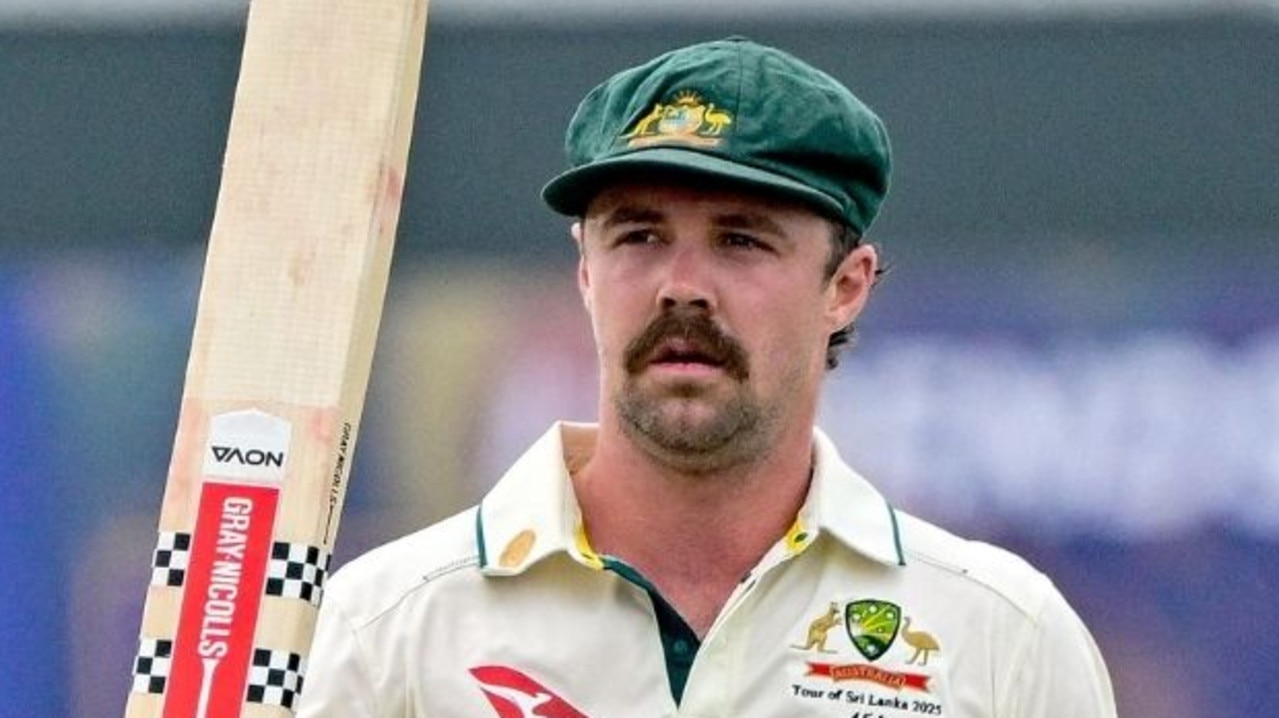So bad you wonder why Seven bought it
SevenWestMedia’s dissing of cricket’s commercial value in the most perverse campaign since the bling king Gerald Ratner 30 years ago.

Welcome to season 2020-21. A pity it’s going to be rubbish. I mean, India, right? Yeah, they’re good, but in empty grounds, who’s going to care? And the Big Bash League. Like, it’s so long, the players are clubbies, and there probably won’t be any bucket hats either ...
Ahem. Of course, I don’t believe any of this. What I’m trying to imagine is the echoey interior of James Warburton’s head, as the chief of Seven West Media goes about trashing cricket’s commercial value in the most perverse campaign since bling king Gerald Ratner 30 years ago.
Ratner, some readers may remember, lightheartedly described his jewellery as “total crap” and “cheaper than an M&S prawn sandwich but probably wouldn’t last as long”. The blowback ended his career, and introduced to the corporate lexicon the concept of “doing a Ratner”.
Doing a Warburton, meanwhile, has consisted of damning his network’s main summer fare and partner Cricket Australia, accusing “the most incompetent administration I’ve ever worked with” of producing a product that was “not acceptable” and a season his network would “not support”. A “train wreck”, in fact.
What kind of broadcast boss talks this way publicly about their content and its provider? The sort who in Seven’s annual report describes his strategy as multi-pronged with three key strategic pillars involving tentpoles to complement Seven’s dominant daily spine of news, sport and entertainment. Mmmm. Spiky.
“How stupid to schedule international cricket against the Big Bash League and drain the resources of a competition already under pressure,” complained Warburton, oblivious to it always having done so.
Then, regards COVID: “The BBL is likely to be hugely impacted (and) the standard of the competition will be compromised and this just rips off the fans.”
Well, yes, it being in the nature of pandemics to affect things, one would expect an impact, including on fans, who may well have been affected by the pandemic in other respects, such as losing their livelihoods or loved ones.
But sure, go on bemoaning COVID for its effect on a domestic T20 tournament because that’s seeing the world in proper perspective, eh?
What Warburton wants, of course, is a discount on his rights fee — as much, it is said, as 40 per cent. He’s like the piqued lover at the door saying: “That’s it, I’m going … I’m going, right now ... This is me going ... Right out that door … Me. The door. Going through it … The next thing you see will be … etc.”
Fans shmans. For a big enough discount he’d broadcast whatever. Seven would show My Kitchen Sucks if it could be made for cheap. This is an argument about price not value.
So the parties are off to the Australian Chamber for International and Commercial Arbitration for independent valuation.
We already know the winner: the lawyers.
The rest? Could be interesting. Yes, hubs will affect player availability; they will also reduce production costs. Yes, crowd restrictions may affect events’ telegenia; they also potentially enhance ratings. Yes, one-day internationals in November delay the Tests; they also potentially free short-form players for the BBL. The arbitrator’s decision, in any event, is non-binding; the next step, court, still looks a fair bet.
In the interim, cricket suffers, as it has all winter, and goes on suffering into summer. Because on Warburton’s noisy estimation, who would bother following this season? Who would advertise on it or wish to sponsor it? Who would even wish to play in it or commentate on it?
A lot of this goes back, of course, to the terms, and the tone, of the original Seven/Foxtel deal.
You remember it, don’t you? The giddying numbers. The euphoric self-congratulation. It came as a tonic in the immediate aftermath of Sandpapergate.
And it was all business. It involved kissing off two broadcasters, Nine and Ten, with long history in and proven loyalty to the game. It involved maximising the content, and the cash, by introducing pay-walled product and further stretching an already stretched BBL.
What’s happened since has been a function of that deal every bit as much as COVID. Season beginnings have been muted by the shortage of free-to-air content. The BBL’s novelty has faded and its quality been diluted.
For its eight franchises, the Indian Premier League condenses the best of 30 Indian first-class sides and, with no internationals being played, has the pick of global talent.
The BBL’s eight franchises are drawn from six state squads, reinforced by such overseas talent as international schedules permit. As natural attrition removes first-choice players, the second-choice replacements visibly struggle to maintain standards. Now, into the bargain, come government approvals, quarantine challenges and biosecurity imposts.
But apart from this last factor, all the foregoing was perceptible, even predictable, in March 2018.
You could almost argue that CA should have foreseen a counterparty risk in signing up with a network whose revenue and earnings had at that stage fallen for six consecutive years.
Nothing, meanwhile, was hidden from Seven, and it had ample opportunity to inspect the property — the contract was not actually finalised until November last year. It still has four years to run. Future gatherings of the parties may be just … a little … tense.
At best, you might call the affair salutary. For much of the past 30 years, the sports rights market has been healthy enough for sports administrators and broadcasters to convince themselves that their interests more or less coincided. We are being reminded that they are more naturally antagonistic.
It is also a harbinger. For whatever we may say of the value of sports rights, we can be guaranteed they are not going up. By the time present contracts run their course, the market will look different again. Who will buy cricket next time round? And what will they have to say about it?





